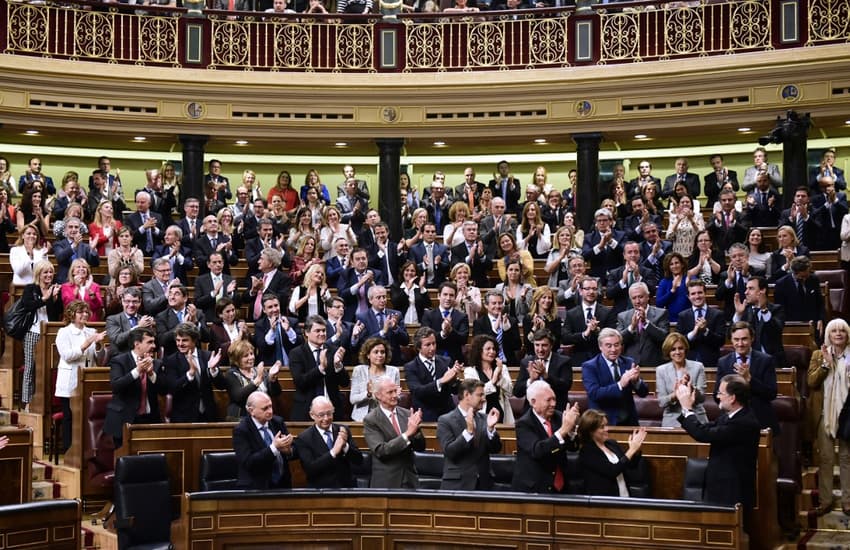Spain to publish names of politicians who refuse to declare their assets

The Spanish government will have to reveal the name of senior officials who don’t declare their assets properly or have refused to do so altogether, Spain’s high court has decided.
Spain’s Office of Conflicts of Interest (OCI) will have to disclose the names of senior officials who haven’t correctly presented their asset declarations for goods and payments which they are bound to declare by law, the country’s high court ruled on Monday.
The ruling is aimed at rooting out illicit practices amongst Spain’s political class, in particular when holding positions or reaching agreements with private companies while holding public office.
Up until now, OCI had kept the names of a dozen senior politicians who have cases opened against them secret, as well as a further 100 Spanish officials who refused to declare their assets between 2015 and 2018.
The state’s legal service told the court that “the publication of any alleged offender’s personal information in the press before a verdict was equivalent to any possible punishment or treating them as guilty before the sentence".
But Spain’s high court ruled that disclosing the name of public officials under investigation was of greater importance than any data protection or privacy claim on their part.
The Spanish government has the right to appeal the decision in the supreme court.
"Given these senior officials’ responsibilities, there must be the maximum amount of transparency, legality and an absence of conflicts between their private interests and those inherent to their public functions," Spain’s high court is quoted as saying in national daily El País.
OCI also has the legal right to prevent public officials from joining the private sector once they leave office, but in 98 percent of cases this practice is allowed.
Comments
See Also
Spain’s Office of Conflicts of Interest (OCI) will have to disclose the names of senior officials who haven’t correctly presented their asset declarations for goods and payments which they are bound to declare by law, the country’s high court ruled on Monday.
The ruling is aimed at rooting out illicit practices amongst Spain’s political class, in particular when holding positions or reaching agreements with private companies while holding public office.
Up until now, OCI had kept the names of a dozen senior politicians who have cases opened against them secret, as well as a further 100 Spanish officials who refused to declare their assets between 2015 and 2018.
The state’s legal service told the court that “the publication of any alleged offender’s personal information in the press before a verdict was equivalent to any possible punishment or treating them as guilty before the sentence".
But Spain’s high court ruled that disclosing the name of public officials under investigation was of greater importance than any data protection or privacy claim on their part.
The Spanish government has the right to appeal the decision in the supreme court.
"Given these senior officials’ responsibilities, there must be the maximum amount of transparency, legality and an absence of conflicts between their private interests and those inherent to their public functions," Spain’s high court is quoted as saying in national daily El País.
OCI also has the legal right to prevent public officials from joining the private sector once they leave office, but in 98 percent of cases this practice is allowed.
Join the conversation in our comments section below. Share your own views and experience and if you have a question or suggestion for our journalists then email us at [email protected].
Please keep comments civil, constructive and on topic – and make sure to read our terms of use before getting involved.
Please log in here to leave a comment.